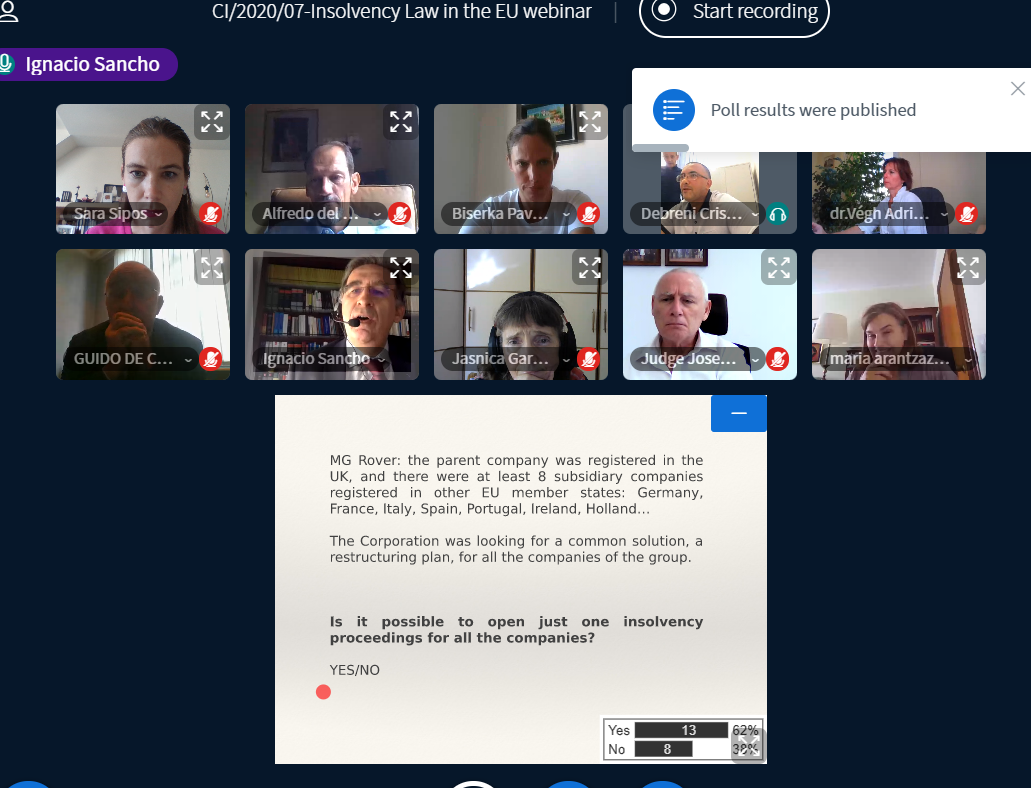EJTN cooperates with the World Bank Organisation (WBO)
EJTN Civil Justice section is delighted to announce its cooperation with the World Bank Organisation (WBO) in the successful implementation of its fifth webinar in 2020 on the topic of ‘Cross-border Insolvency Law in the EU’ on 2-3 September 2020.
The training was foreseen to take place initially at the Judicial Academy of Croatia in Zagreb in, however the EJTN had to react in a quick manner to the challenges and Europe wide restrictions imposed by as results of the COVID 19 epidemic and transformed the seminar in an online training.
The webinar was led by 6 expert speakers and hosted 25 participants representing 10 Member States. The training focused on interaction between parties as participating magistrates had the possibility to ask direct questions to the panellists.
The training raised awareness on highly specialized topics pertaining to diversified aspects of Cross-border Insolvency.
The webinar focused more on the insolvency of companies which operate in more than one country rather than the bankruptcy of individuals. Like traditional conflict of laws rules, cross-border insolvency focuses upon three areas: choice of law rules, jurisdiction rules and enforcement of judgment rules. However, in relation to insolvency, the principal focus tends to be the recognition of foreign insolvency officials and their powers.
Cooperation with the World Bank Organisation (WBO)
The World Bank Group, in partnership with INSOL International, has launched a new online course aimed at building the capacity of judges and court systems for coping with a coming wave of insolvencies resulting from the COVID-19 pandemic.
To learn more please go to: World Bank Judicial Insolvency Program
Mr. Mahesh Uttamchandani, the Global Practice Manager for Financial Infrastructure and Inclusion in the World Bank Group in Washington, DC., delivered in our webinar a presentation on “The impact of COVID-19 on Insolvency Law”.
His intervention focused on resolving insolvency cases efficiently and effectively. He emphasised during his lecture that it will be critical to speeding up the return to a healthy functioning economy, but many courts do not have the capacity or the expertise to effectively address these concerns. Handling distressed firms quickly is essential to save viable businesses and liquidate non-viable ones, maximize creditor recovery and cleanse the market of so-called “zombie” firms, those which absorb just enough financial resources to survive but do not contribute to growth and employment.
Building on the valuable and positive feedback of attendees, the EJTN continues to implement its training curricula online, ensuring the continuity of professional exchanges between European magistrates as well as enhancing mutual cooperation and trust.
